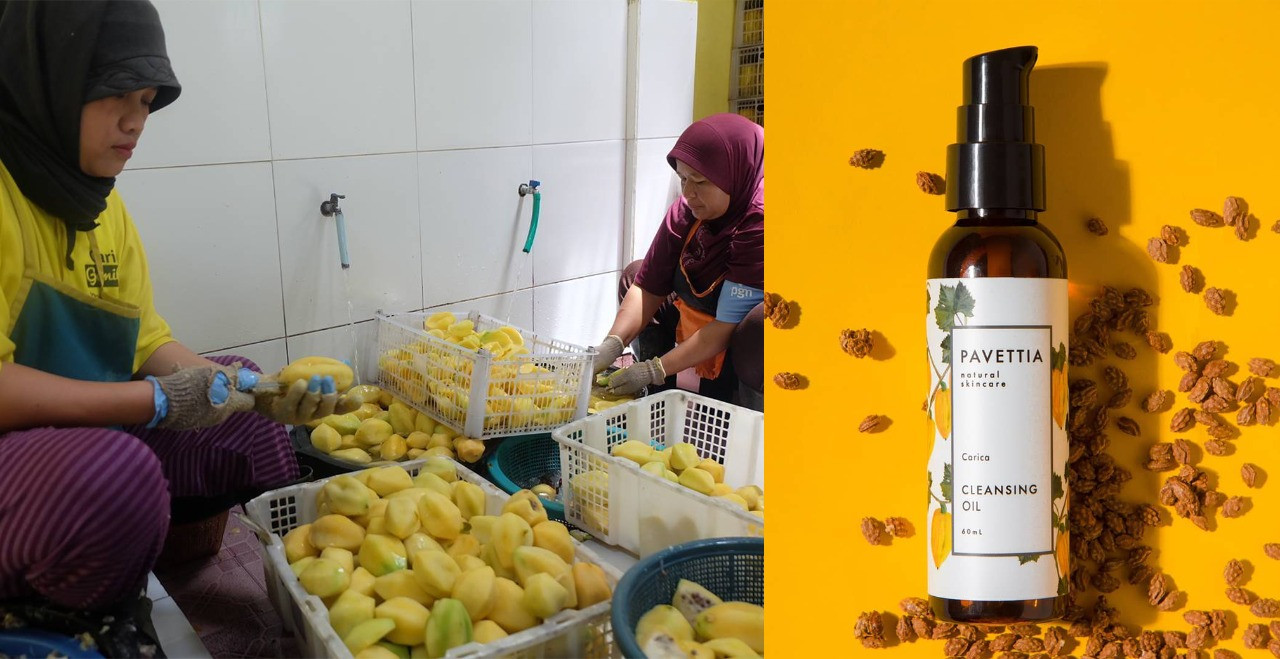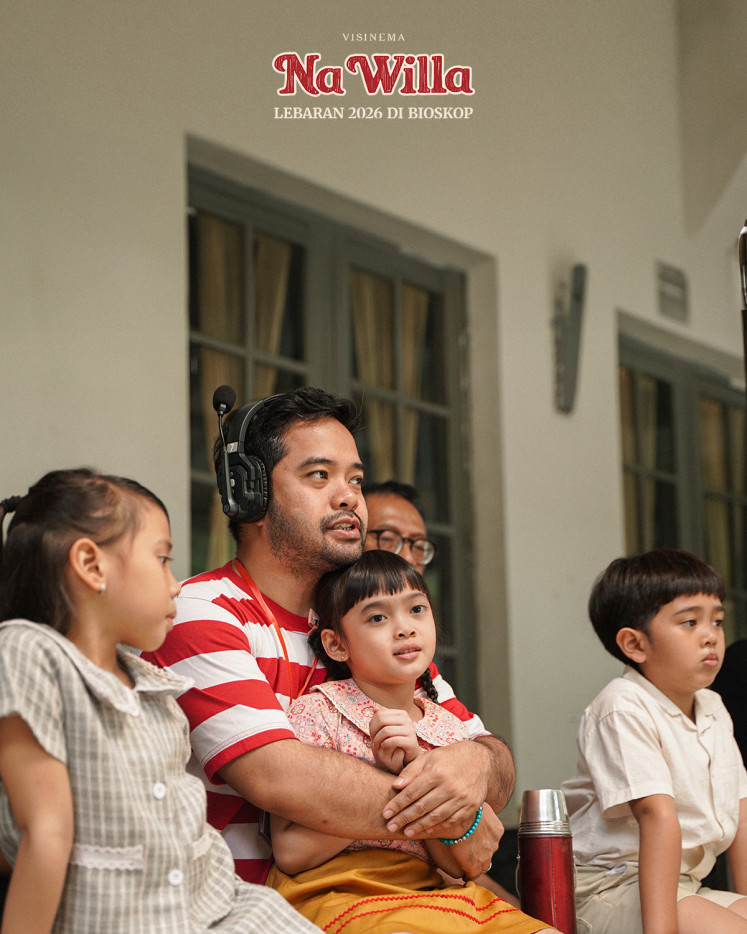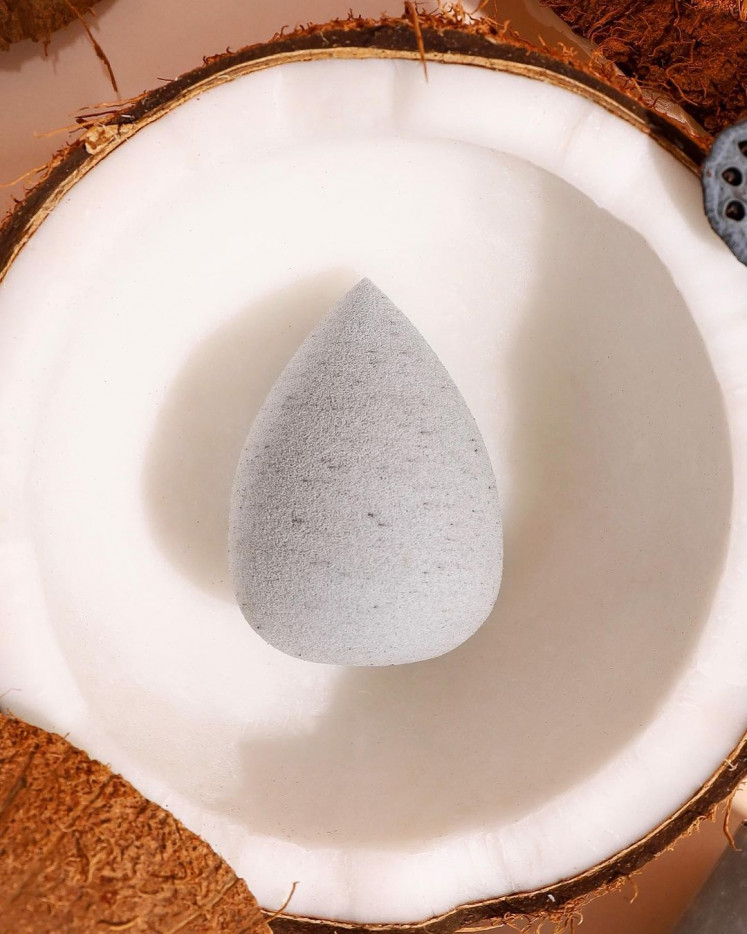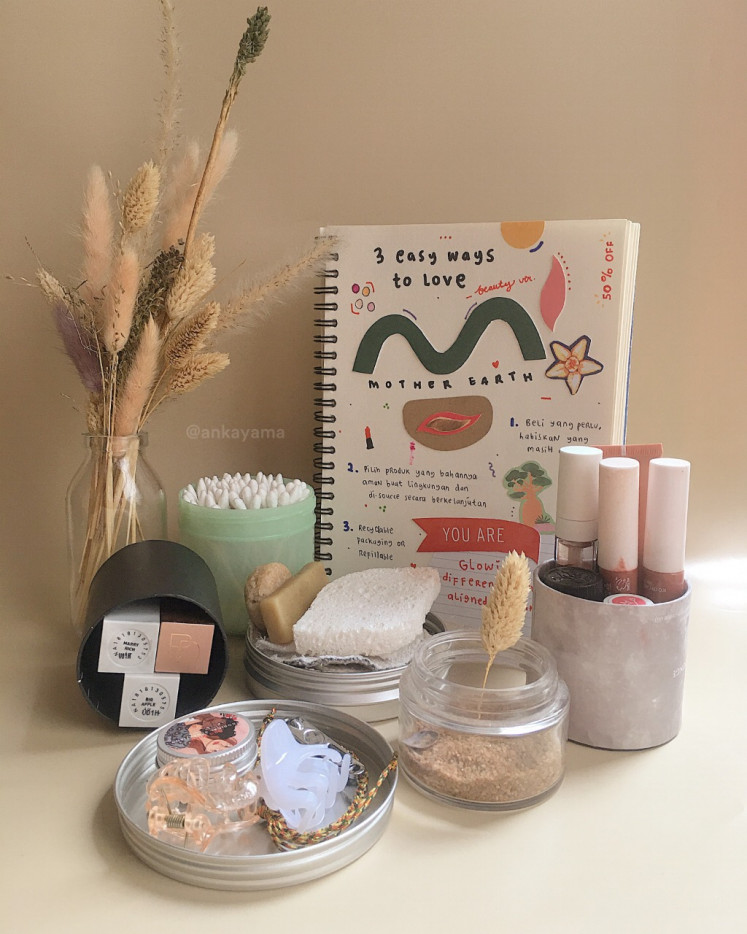Popular Reads
Top Results
Can't find what you're looking for?
View all search resultsPopular Reads
Top Results
Can't find what you're looking for?
View all search resultsMore than a buzzword: Local beauty brands strive for genuine ‘sustainability’
Before “sustainability” became a buzzword used by the beauty industry to market products, a good number of local independent brands were already delivering actual solutions and challenging decades-old ways of production. Today, they are adding layers to their sustainability practices.
Change text size
Gift Premium Articles
to Anyone
T
he beauty industry churns out products at hurtling speed to keep up with trends, putting the promise of having clear skin before its cost to the environment. Yet, growing knowledge about the environmental burden has shifted consumers' buying patterns into a more ethical direction, forcing brands to keep up. But how sustainable can beauty brands actually be?
For many brands, their sustainability practices often allude to easy-to-communicate actions such as phasing out plastic packaging and swapping it with recyclable materials.
Eco-friendly packaging however, is only the tip of the sustainability iceberg. It barely untangles the convoluted relationship between beauty and sustainability. A number of homegrown independent beauty brands have reimagined new ways to prove that beauty and sustainability can go hand in hand - but only if the people in the industry are willing to be involved in the dialogue.
One man's trash, another man's treasure
Since 2015, independent beauty brand Pavettia Skincare has been sourcing materials for its products from its own farm in Subang, West Java.
Their Carica Cleansing Oil, for instance, is sourced from carica (mountain papaya) seeds, which are often discarded when the carica is used to make souvenirs typical to the region of Dieng in Central Java. This means, Pavettia utilizes other industries' byproducts, making a positive change at a supply-chain level intervention.
In April, independent beauty brand Runa Beauty launched a beauty sponge named Mare Coco Sponge, made from 70 percent coconut husk and 30 percent bio-based polyurethane foam derived from castor oil.
Waste, repurposed: Runa Beauty created a beauty sponge made from coconut husk. (Runa Beauty/Courtesy of Runa Beauty)Runa Beauty's founder Sonia Garcia, 28, told The Jakarta Post that she came across the material during a visit to one of the company’s palm oil suppliers.
“I realized byproducts such as coconut husks have a lot of untapped potential. Of the approximately 50 billion coconuts grown in Indonesia, about 85 percent of the husks are discarded like trash or set on fire, further contributing to global pollution. Running this company got me thinking, can we find value in what is seen as waste to be used toward a valuable beauty and skincare resource?"
Layers in sustainability
Since its launch in 2019, Runa Beauty has sourced ingredients from small, independent producers. Sonia said it was a part of Runa's mission to continue cultivating native plants and minerals in the healthiest way possible.
But is it challenging to find partners that fit a realistically narrow sustainability ethos? Sonia thinks so.
Read also: Skincare brand Utama Spice doubles sales during PPKM through online selling
"To say it's challenging would be an understatement. But we are trying to vet our suppliers rigorously and trace the origins of each and every plant and mineral from which we derive our ingredients. We have to know how each raw material is cultivated, and ensure that the ingredients are raised sustainably and treated with integrity, and the producers and workers are compensated fairly."
As for Pavettia, its other sustainability commitments include making sure that its farm steers clear from chemical fertilizer in treating the crops and relying on handpicked citronella leaves instead of non-recyclable bubble wrap. The start of this venture is said to be an uphill battle, according to the brand's cofounder, Erika Simangunsong.
"With this commitment, we need to take care of a lot of variables, from planting and harvesting to processing the crops, not to mention there are also times when we can't harvest our crops due to the weather," said Erika.
Conscious consumers
Besides the complex creation stage, introducing an all-natural beauty product was a daunting task back when people didn't understand its urgency.
"Five years ago when we first launched, [the Indonesian] market valued imported beauty products more than local products, and they didn't believe in environmentally friendly products," said Erika. "But luckily, it is much easier to introduce natural products today compared to 5 years ago."
Sonia sees things the same way. "I realized we are at a place where people care about the brands they are giving their money to, and they want to hear about mission-driven companies."
Eco-beauty content creator Ankayama Lowing, 35, harnesses the power of social media to lead sustainability conversations in beauty. She realized that her growing fondness of trying out different skincare products resulted in mounting packaging boxes.
"My concern over beauty that is as kind to the environment as to the skin started there,” she shared.
Creative recycling: Ankayama Lowing, 35, an eco-beauty content creator repurposes skincare jars into photo props, lipstick holders and beauty organizers. (Ankayama/Courtesy of Ankayama)Read also: Sustainable fashion trend rises along with e-commerce during COVID-19
“From that point in time, I only supported brands with the same value as mine. I started to squint through the ingredients list in the lookout for cruelty-free ingredients and do my pre-purchase research to see whether the brands have any environmental initiatives," said Ankayama, who also underlines the importance of choosing a product that suits our skin concern on top of everything.
But first, reuse
The matter of sustainability in beauty leaves the responsibility both on the brands and in the hands of consumers. This begs a closer look and an evaluation of our consumption and waste management patterns.
As a graphic designer, Ankayama understands the long crafting process behind packaging. That said, reusing has always been her go-to mantra to minimize waste. Although the concept of reusing is not entirely new, our throwaway culture has regressed on that front.
"Our mothers and generations before us have set the example for us. My mother always repurposes unused packaging, like storing coins in a peanut butter jar or vegetables in an ice cream box. But why is it that for our generation, the idea of reusing seems irrelevant?" Ankayama asks.
Evening, another local independent beauty brand, promotes sustainability by selling reusable cotton pads made from fabric waste and reusable cotton buds made from silicone. Evening was one of the first to produce reusable beauty staples in Indonesia.
Here comes the catch: Running a business by selling reusable tools diminishes the need for repeat orders from customers. Evening's founder Luqyana, 24, took that risk when she first launched the product in 2018.
"It will be more enjoyable for me as the brand owner to run this business based on my personal beauty approach. I believe this will help me in delivering more truthful messages through any campaign and content I put out," said Luqyana.
Luqyana added, "I think moving forward, the beauty market will be less competitive but rather just a matter of preference, just like music. It's about being true to our values, including sustainability, and finding the audience that believes in our products and upholds the same values."
In the same vein, Sonia said that after building and running Runa for two years, she had quickly understood that consumers in Indonesia today had the hunger and readiness for sustainable solutions.
She said, “I’ve been in this industry for a while now, and I honestly believe that the barrier of entry to the beauty industry is lower than ever. There are third-party chemical suppliers, accessible contract manufacturers, cheap pre-made formulas, and this makes it incredibly easy to create poor quality beauty products, with very little innovation and genuine interest in making a positive impact.”
Read also: More time for self-care: Indonesia’s beauty industry sees online sales surge during WFH
It is a challenging situation for any beauty brand aiming to make a tangible difference, but Sonia remains hopeful.
“I’d love for this industry to embrace ingenuity and innovation, particularly in sustainability, to continue to push it forward.”













